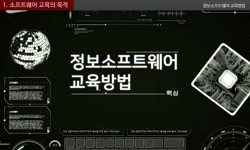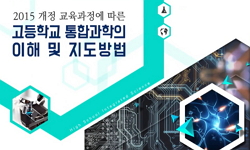본 연구에서는 초등학교의 알고리즘 교육에 필요한 교육 내용과 교육 방법, 평가 유형을 제안하였다. 첫째, 교육 내용으로는 한국정보교육학회에서 제안한 정보교육과정을 보완하여 알고리...
http://chineseinput.net/에서 pinyin(병음)방식으로 중국어를 변환할 수 있습니다.
변환된 중국어를 복사하여 사용하시면 됩니다.
- 中文 을 입력하시려면 zhongwen을 입력하시고 space를누르시면됩니다.
- 北京 을 입력하시려면 beijing을 입력하시고 space를 누르시면 됩니다.
부가정보
국문 초록 (Abstract)
본 연구에서는 초등학교의 알고리즘 교육에 필요한 교육 내용과 교육 방법, 평가 유형을 제안하였다. 첫째, 교육 내용으로는 한국정보교육학회에서 제안한 정보교육과정을 보완하여 알고리즘의 표현, 알고리즘의 이해, 알고리즘과 순서도, 알고리즘의 구조, 알고리즘의 결과, 알고리즘의 수정, 알고리즘의 개선으로 구분하였다. 둘째, 교육 방법으로는 생활 속 코딩, 언플러그 활동, 블록 프로그래밍, 체감형 프로그래밍을 제안하였다. 셋째, Code.org에서 제공하는 ‘Hour of Code’의 모든 미션을 분석한 후 평가 유형을 알고리즘 선택하기, 알고리즘 채우기, 알고리즘 수정하기, 알고리즘 예측하기로 구성하였다.
다국어 초록 (Multilingual Abstract)
In this study, we suggested the contents, teaching and learning method, and assessment types of algorithm education in elementary schools. First, we suggested the algorithm education contents; the expression, understanding, flowcharts, structure, resu...
In this study, we suggested the contents, teaching and learning method, and assessment types of algorithm education in elementary schools. First, we suggested the algorithm education contents; the expression, understanding, flowcharts, structure, results, correction, and improvement of algorithm. Second, we showed the algorithm teaching and learning methods; algorithm in our daily life, the unplugged activity, block programming and tangible programming. Finally, we analyzed all missions of ‘Hour of Code’ in Code.org, and suggested the algorithm assessment 4 types, which includes selecting, filling, correcting, predicting of appropriate algorithm.
목차 (Table of Contents)
- 요약
- ABSTRACT
- 1. 서론
- 2. 알고리즘 교육의 내용과 방법
- 2.1 알고리즘 교육 내용
- 요약
- ABSTRACT
- 1. 서론
- 2. 알고리즘 교육의 내용과 방법
- 2.1 알고리즘 교육 내용
- 2.2 알고리즘 교육 방법
- 3. 알고리즘 교육의 평가 유형
- 3.1 알고리즘 선택하기
- 3.2 알고리즘 채우기
- 3.3 알고리즘 수정하기
- 3.4 알고리즘 예측하기
- 4. 결론 및 제언
- 참고문헌
참고문헌 (Reference)
1 정영식, "초등학교와 중학교에서의 정보과학 교과를 위한 알고리즘 교육내용체계에 관한 연구" 한국정보교육학회 18 (18): 275-284, 2014
2 김갑수, "정보과학 교과 내용체계에 관한 연구" 한국정보교육학회 18 (18): 161-171, 2014
3 Oh Kyungsun., "“Tim Bell”using the unplugged computing on the improvement of Computational Thinking" The Korean Association of Computer Education 16 (16): 37-40, 2012
4 Money Today, "‘1 trillion won’, Samsung-M S, ‘Patent dispute shut down"
5 Ministry of Science, ICT and Future Planning &National IT Industry Promotion Agency, "Wh at is the software oriented society"
6 P21, "We’re taking teaching and learning above & beyond" Partnership for 21st Century Skills 2010
7 Jeong Youngsik., "Theory of Software Education" Simass 2015
8 Frey, C. B., "The future of employment : how susceptible are jobs to computerisation"
9 Ministry of Education, "Software Education Operating Instructions" 2015
10 Seo Insuk., "Research of Instructional Design on Unplugged Cooperative Learning for Elementary Information unit area" The Korean Association of Computer Education 15 (15): 79-84, 2011
1 정영식, "초등학교와 중학교에서의 정보과학 교과를 위한 알고리즘 교육내용체계에 관한 연구" 한국정보교육학회 18 (18): 275-284, 2014
2 김갑수, "정보과학 교과 내용체계에 관한 연구" 한국정보교육학회 18 (18): 161-171, 2014
3 Oh Kyungsun., "“Tim Bell”using the unplugged computing on the improvement of Computational Thinking" The Korean Association of Computer Education 16 (16): 37-40, 2012
4 Money Today, "‘1 trillion won’, Samsung-M S, ‘Patent dispute shut down"
5 Ministry of Science, ICT and Future Planning &National IT Industry Promotion Agency, "Wh at is the software oriented society"
6 P21, "We’re taking teaching and learning above & beyond" Partnership for 21st Century Skills 2010
7 Jeong Youngsik., "Theory of Software Education" Simass 2015
8 Frey, C. B., "The future of employment : how susceptible are jobs to computerisation"
9 Ministry of Education, "Software Education Operating Instructions" 2015
10 Seo Insuk., "Research of Instructional Design on Unplugged Cooperative Learning for Elementary Information unit area" The Korean Association of Computer Education 15 (15): 79-84, 2011
11 Jeong Youngsik, "Domestic and international software education trends, and suggestion of software education curriculum in elementary schools" 1-40, 2015
12 Tim Bell., "CS Unplugged: An enrichment and extension programme for primary-aged students"
13 Chosun Biz, "Apple, Up to two successive quarterly sales... Samsung bigger crisis"
14 MIT Media Lab, "About Scratch"
15 Han Sanggun., "2014 Future work world : Vocational side" Ministry of Education &Korea Research Institute for Vocational Education & Training 2014
동일학술지(권/호) 다른 논문
-
학교 급별 연계성 있는 소프트웨어 교육 체제 설계를 위한 연구
- 한국정보교육학회
- 신승기
- 2015
- KCI등재
-
초등학생을 위한 정보윤리 및 창작도구 교육과정 모델 개발
- 한국정보교육학회
- 김현배
- 2015
- KCI등재
-
초등학교 여학생의 컴퓨팅적 사고력 신장을 위한 앱인벤터 활용 S/W교육 프로그램 개발 및 적용
- 한국정보교육학회
- 김용민
- 2015
- KCI등재
-
스마트 교수-학습 자료 지원 시스템의 개발 및 효과 분석 연구
- 한국정보교육학회
- 이미화
- 2015
- KCI등재
분석정보
인용정보 인용지수 설명보기
학술지 이력
| 연월일 | 이력구분 | 이력상세 | 등재구분 |
|---|---|---|---|
| 2022 | 평가예정 | 재인증평가 신청대상 (재인증) | |
| 2019-01-01 | 평가 | 등재학술지 유지 (계속평가) |  |
| 2016-01-01 | 평가 | 등재학술지 유지 (계속평가) |  |
| 2012-01-01 | 평가 | 등재학술지 유지 (등재유지) |  |
| 2009-01-01 | 평가 | 등재학술지 선정 (등재후보2차) |  |
| 2008-01-01 | 평가 | 등재후보 1차 PASS (등재후보1차) |  |
| 2007-01-01 | 평가 | 등재후보학술지 유지 (등재후보1차) |  |
| 2006-01-01 | 평가 | 등재후보 1차 FAIL (등재후보1차) |  |
| 2005-01-01 | 평가 | 등재후보학술지 유지 (등재후보1차) |  |
| 2004-01-01 | 평가 | 등재후보학술지 유지 (등재후보1차) |  |
| 2002-01-01 | 평가 | 등재후보학술지 선정 (신규평가) |  |
학술지 인용정보
| 기준연도 | WOS-KCI 통합IF(2년) | KCIF(2년) | KCIF(3년) |
|---|---|---|---|
| 2016 | 1.5 | 1.5 | 1.45 |
| KCIF(4년) | KCIF(5년) | 중심성지수(3년) | 즉시성지수 |
| 1.41 | 1.25 | 1.991 | 0.38 |





 ScienceON
ScienceON eArticle
eArticle






